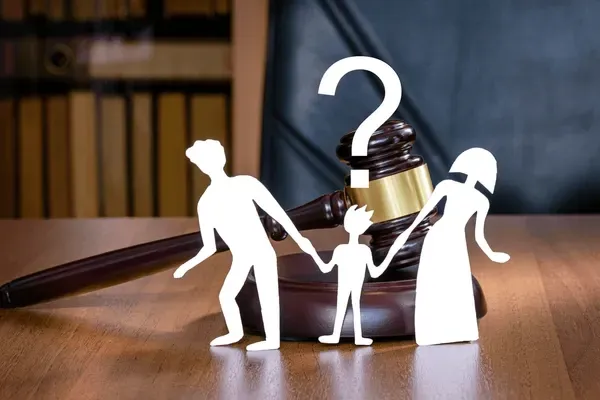How to Tell if Your Spouse is Cheating in North Carolina
Steps You Should Take if You Suspect Your Spouse of Cheating

Unfaithfulness is ugly, even in today’s day and age when polyamory in North Carolina (and the rest of the US) is so widespread. After all, while some people might like to keep their options open, others prefer to have individual intimacy. Love is incredibly powerful, and losing that love to cheating can be devastating, especially if you happen to be married to the adulterer. But how can you know if your spouse is cheating on you or just going threw a hard time? Well, you’ll have to do a bit of spousal spying to find out.
Sings Your Spouse is Cheating
Generally speaking, there are common signs that can be easily spotted to tell if your spouse is being unfaithful. Most cheaters, including NC residents, exhibit the same basic behavior and use the similar methods of covering their tracks. In addition, when confronted, they often provide the same, cookie-cutter courtesy responses.
Of course, some individuals will still find it difficult to figure out whether or not their significant other is cheating on them. Even worse, they can assume infidelity and accuse their partner who did nothing wrong. In order to avoid falsely accusing your partner, pay close attention to the potential signs of cheating. These signs can either be verbal cues, behavior changes, body language, and/or the choice of conversational topics. In short, while your partner can hide some of their sign, many can’t hide them all.
With that in mind, here are some common signs of spousal spying:
- General (and recent) disinterest in you, your activities, or the events that happened to you
- A decrease in romantic activity
- A decrease in sexual activity
- Sudden, unexplained work schedule changes
- The spouse returning home late with little or no real reason behind it
- The spouse moving to a different room that you’re not currently in
- Suspicious phone activity (odd notifications, the sound turned off, the spouse turning the screen away from you often)
- Unexplained recent spending or unpaid bills
- Leaving the house late while you sleep
- Changes in dressing or grooming habits
- Increased frequency of fighting
- The spouse avoids talking about their feelings or your life together
- The spouse being nervous when you talk about honesty or fidelity in particular
- New password protection on their devices
- Talking about a new person often
What Should You Do When You Find Out?
Did you notice one or more of those signs of cheating listed above? If so, your next step may be — spousal spying. But how can you go about it and, more importantly, how can you expect to get proper evidence of your spouse’s unfaithfulness?
Personal Investigation
If you’re careful and know where to look, you can find out all sorts of things about your spouse that they might not be telling you. Sure, it might be a tiny detail, like the fact that they’re eating junk food and are embarrassed to admit it. However, use a critical eye when determining if they are indeed being unfaithful.
With that in mind, here are a few things you can do while conducting your own private investigation.
Check Their Devices
It might seem like the simplest method of checking on your spouse. If they’re contacting someone behind your back, just look at their phone, laptop, tablet, etc., right?
Well, with modern technology, that’s easier said than done. For example, your spouse could easily change their password and hide all of their data. Which can raise a red flag, especially if they avoid giving you an explanation. If your spouse allowed you to handle their devices in the past, a quick way of checking for cheating is to check their devices. If you decide to inspect their device pay close attention to their call records, SMS messages, messaging apps, emails, video apps, etc.
Of course, you have to be ready for anything, since your spouse might simply delete all the incriminating evidence. If that happens, simply look for any signs of the frequency with calls, call records, etc. If they were talking to a different person behind your back, that person should frequently appear in one way or another on your partner’s devices.
Observe Their Behavior
Generally speaking, you can sort spousal behavior into two categories:
- Behavior toward others
- Behavior toward you
When you observe them in a group setting, take a close look at their body language. Are they handsy with a coworker or friend? Do they use professional, amicable, or downright suggestive language when they’re talking to others? Do their pupils dilate when they chat with a specific individual? How do they look when they talk to that person, do they appear happier than usual or not? Do they talk about that one person more often?
Of course, that behavior, in and of itself, might just be regular pleasantries. However, make sure to also note your spouse’s behavior when they are alone in the room with you. Do they avoid talking about their day, their problems, or their feelings? Are they avoiding you through subtle means, like going to the bathroom one too many times or suddenly having to excuse themselves for various reasons? Are they distant, cold, a bit antagonistic, or even downright hostile?
A combination of those types of behavior will usually be a strong sign that they have lost interest in you and/or may be cheating.
Observe Your Surroundings
Keep an eye out for any unusual or different behavior your spouse may be exhibiting. Your spouse might come home one day with an expensive-looking present and tell you that it’s for a friend. In addition, you might notice that the money you have in your joint bank account is slowly draining. Also, the partner might begin to groom and dress in a different way — the husband starts to shave for the first time in months, the wife's style changes for the first time in years. Maybe there’s a scent of perfume or cologne on them that wasn’t there before, that neither one of you owns.
Most of the time, people who cheat tend to cover their tracks. However, with so many different variables, it’s only a matter of time before they something is brought to light. Before that time comes, you must stay vigilant and pay close attention to everything, including the smallest of details.
Hiring a Private Investigator
Breaking into your spouse’s personal data, including phone calls and instant messages, may placate your desire to see if they are cheating. However, even if your spouse is cheating, going threw someone's personal property is not the most legal of methods.
Luckily, a legal way to do spousal spying does exist, and it involves hiring a Private Investigator (PI). With years of experience, PIs in North Carolina can track your partner’s every move and figure out the necessary patterns. Of course, before you hire a PI, consult a divorce attorney on whether or not it’s even worth it. For example, you might get some peace of mind when you break up with your cheating partner, but you might not be properly compensated by the law. In fact, it might even cost you huge sums of money just to get your life back to normal after the ordeal.
A private investigator can do a lot when it comes to observing your partner. For instance, an average NC-based PI might:
- Snap pictures of your spouse around town
- Follow their every move
- Install surveillance equipment that they won’t spot
- Keep tabs on their car by installing a secret GPS system
- Run a background check on your spouse’s friends and contacts
Final Thoughts on the Ethics of Spousal Spying
As you can see, spousal spying isn’t easy, and figuring out whether or not they might be cheating on you requires a lot of time and effort. Naturally, the question about how ethical this whole practice really is remains. After all, you’re invading someone else’s privacy.
Nearly everyone, including people who do the spying, agrees that there is no legal justification for checking up on your spouse. However, you’re not technically trying to harm a stranger, but are simply investigating the person who promised to stay with you till death do you part.
Ultimately, it’s a complicated query to answer. The best way to go about spousal spying in North Carolina is to either contact a divorce attorney or private investigator. Remember, while questioning your spouses faithfulness, treat them with the same respect with which you'd want them, or anyone, to treat you.











